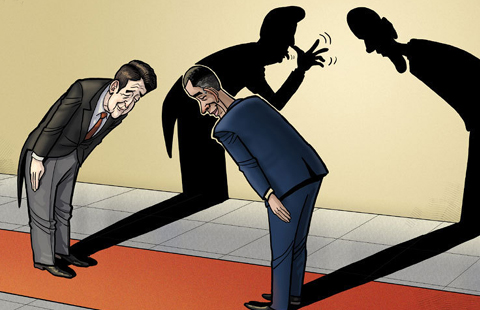For whom does the road toll greedily?
By Xin Zhiming (China Daily) Updated: 2014-12-25 07:48China's road management authorities have claimed they spent as much as 431.2 billion yuan ($69 billion) on the building, operation and maintenance of expressways, while collecting 365.2 billion yuan in tolls in 2013, meaning there was a huge deficit of 66 billion yuan.
The Ministry of Transport said that 314.7 billion yuan has been used to pay for bank loans, 39 billion yuan for maintenance while 45.7 billion yuan was spent on operational and managerial costs. "Other expenditures" were 10.4 billion, the ministry said.
It is obvious that the ministry has released the data not only to satisfy the public's right to know, but to quell the rising public ire over the continuing collection of tolls for expressways long after their construction costs are supposed to have been recovered.
According to China's road management regulations, State-funded highways can collect tolls for 15 years after the start of their operation. Those in the less-developed central and western regions can extend the period by five years.
As operation of a large number of expressways was started in the 1990s, their toll-collecting duration has expired or is soon to expire. However, some provincial authorities have allowed the charging of tolls to continue.
The Hebei section of the Beijing-Shijiazhuang Expressway, for example, has got the go-ahead from the provincial authorities to continue to collect tolls even though drivers have been paying to use the road since 1993.
Other provinces are also considering prolonging the collection of tolls on some of their expressways when the supposed expiry date draws near.











